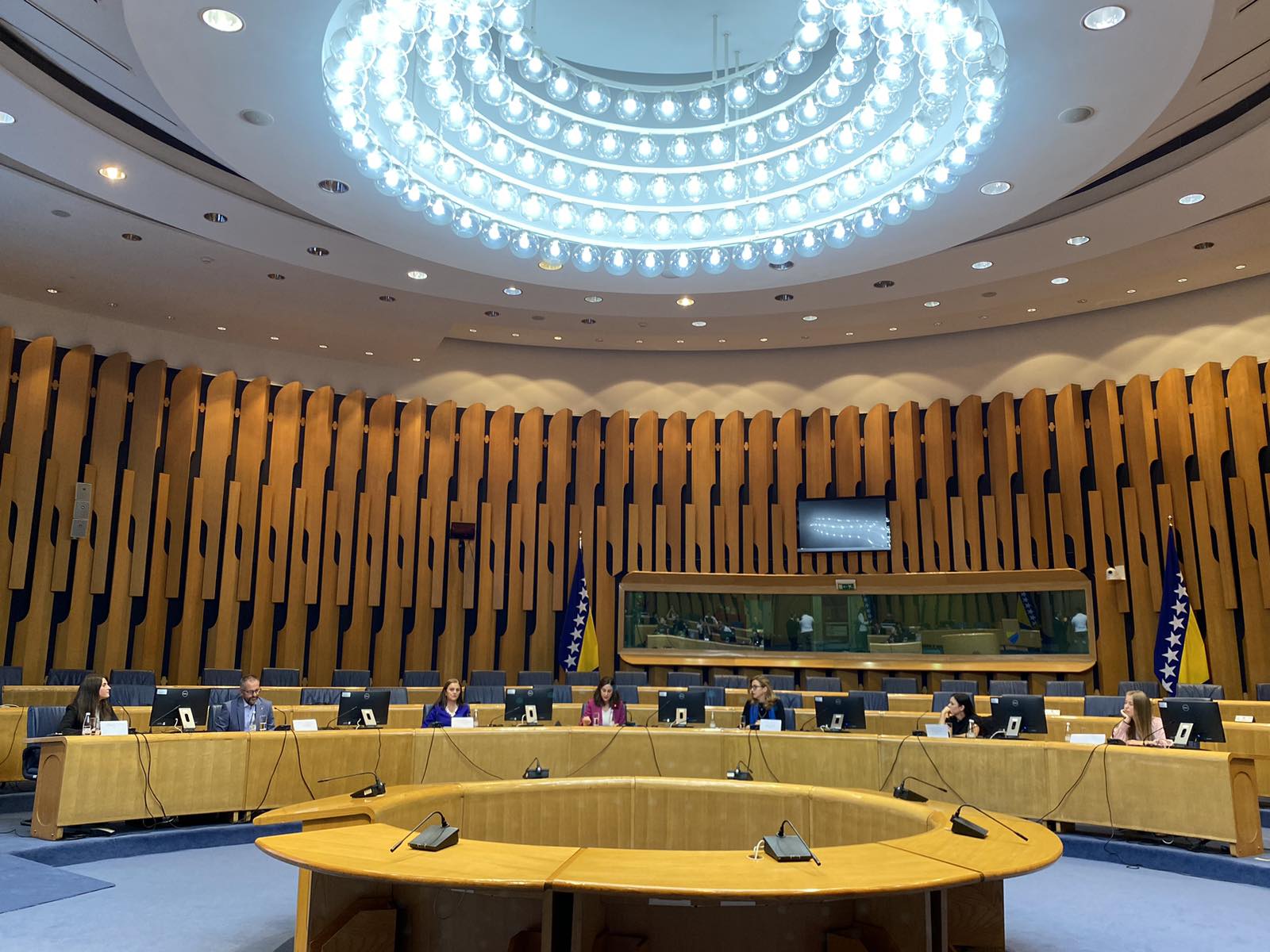The Sixth Western Balkans Digital Summit tackles the gender digital divide
Date:

The Sixth Western Balkans Digital Summit (WB6), the largest regional event on cooperation in the field of digital transformation, took place on October 4 and 5 in Sarajevo, Bosnia and Herzegovina, organized by the Ministry of Communication and Transport of Bosnia and Herzegovina. The event brought together around 500 participants, representatives of 150 companies, and over 100 speakers who discussed the transformative role of digitization as a shared vision and idea for the entire Western Balkans region. The discussions also focused on regional cooperation in strengthening security in the digital space, as well as entrepreneurship. UN Women Bosnia and Herzegovina supported this important regional event and organized a panel discussion on the gender gap in the digital world, as well as a networking event for young women embarking on IT careers.
The discussion, held on October 5, allowed the attendees to hear experiences from experts in the Western Balkans, their solutions for bridging the digital gap between boys and girls, men and women, and creating gender-responsive programs that address the process of digital transformation.
"The digital age has generated unprecedented opportunities for the empowerment of women and girls. While technology is an enabler for gender equality, it also has the potential to introduce new forms of inequality and undermine women’s rights and well-being," emphasized Jo-Anne Bishop, Representative of UN Women BiH, who chaired the panel discussion. In some Western Balkans countries, women constitute only 29% of the workforce in the IT industry, and only 10% are entrepreneurs in the IT sector, said Bishop, adding that four times more men than women have formal education in this field in Europe, and women are paid only 78% of what their male counterparts earn.
Emina Zolota joined the IT Girls initiative as a high school student, where she had the opportunity to work on the development of mobile applications and to be an intern at The Ministry of Programming software company in Sarajevo. Encouraged and inspired by the positive experience, Emina continued her education in the IT sector, and her career is on the rise. Emina actively works on innovative solutions to enhance sustainable development in Bosnia and Herzegovina and serves as an inspiration to girls in BiH and the region.
"I think that the position of girls and women in urban areas is more favourable because they are closer to events and education related to IT. Looking at the history of IT development and the position of women in it, we can definitely see progress. Twenty years ago, the IT industry was exclusively reserved for men, while now the percentage of female students at my faculty is surely 50%," emphasized Emina.
She also talked about the importance of mentoring and support in this field. "I think it is crucial to provide girls with mentors who can introduce them to the IT world. I had several mentors, and each marked a part of my journey. Now I am trying to be a mentor to someone because I am aware of the influence it has on developing someone's potential. So, I actively participate in creating a network that supports girls."
The importance of support, mentoring, and digital empowerment of women is also actively advocated by Teuta Sahatqija, ambassador of Women in Tech Kosovo, an organization that has empowered more than 2800 women and girls globally in this field, through facilitating access to key infrastructure, comprehensive training programs, internships, mentorship, and practices. “Women in Tech is actively paving the way for digital empowerment with the goal of eradicating the digital divide," said Teuta. “The swift integration of digital transformation and artificial intelligence into our daily lives demands immediate, robust measures to ensure women are integral and that the digital gender gap is swiftly bridged.”
Women in Tech Global Movement is on that path, establishing an expansive worldwide network, a community that provides hope, strength, and confidence to hundreds and thousands of women worldwide, uniting them across the globe.
Among the panel members were also Selma Prodanović, an entrepreneur and globally recognized speaker and investor, Valentina Stadnic, Digital Service Expert at ITU Office for Europe, Damir Maglajlić, Executive Director of Bit Alliance, and Arijana Drinić, Head of Exploration at the Accelerator Lab Bosnia and Herzegovina.
Speaking about the importance of inclusive and transformative technology and digital education, all speakers agreed on one thing – building a safe and inclusive digital future is the everyone’s responsibility. The gender digital gap is still a reality, but it can be overcome by opening as many opportunities as possible in this field, so women and girls claim their place in IT and technology industries.